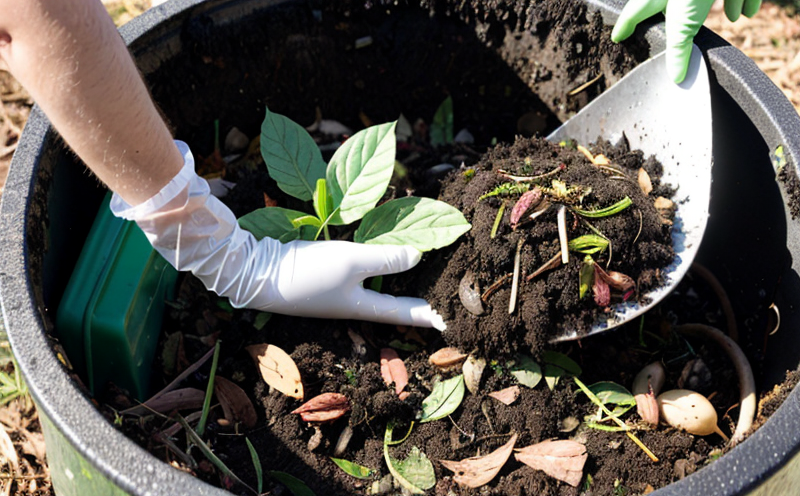ISO 17623 β-Glucosidase Activity Testing in Compost
The ISO 17623 β-Glucosidase Activity Test is a critical component of waste management and compost quality assurance. This test measures the enzymatic activity responsible for breaking down cellulose into glucose, which is essential for nutrient availability and soil fertility. In composting, understanding β-glucosidase activity helps ensure that the compost is rich in easily accessible nutrients, thereby promoting healthier plant growth.
The importance of this test cannot be overstated, especially in the context of sustainable waste management practices. By accurately assessing β-glucosidase activity, laboratories can provide data that supports decision-making processes aimed at enhancing soil health and reducing environmental impact. This service is particularly valuable for quality managers looking to optimize compost production or for R&D engineers aiming to improve the efficiency of microbial degradation processes.
The test involves a series of steps designed to accurately measure enzyme activity without causing interference from other potential sources. Specimens are carefully prepared, ensuring that they are representative of the compost being tested. The use of specific apparatus and reagents is crucial for obtaining precise results. Reporting these findings in accordance with ISO 17623 ensures consistency and reliability.
The process begins with the preparation of a suitable medium containing cellulose, which serves as the substrate for β-glucosidase. Incubation at controlled temperatures allows the enzyme to act on the substrate, producing glucose. The amount of glucose produced is quantified using spectrophotometric methods, providing a direct measure of β-glucosidase activity.
Compliance with international standards such as ISO 17623 ensures that results are comparable across different laboratories and jurisdictions. This standardization is vital for maintaining consistency in quality assurance practices worldwide. The test also helps in assessing the maturity of compost, which is crucial for its safe application to agricultural lands.
The significance of this test extends beyond mere compliance; it plays a pivotal role in fostering sustainable waste management practices. By ensuring that compost is rich in nutrients and free from harmful pathogens, this service contributes to environmental conservation efforts. For procurement officers, the reliable data provided by this test can help them select suppliers who adhere to high-quality standards.
The ISO 17623 β-Glucosidase Activity Test is not just a technical procedure; it represents a commitment to excellence in waste management and compost quality assurance. It underscores the importance of precision, accuracy, and consistency in laboratory testing practices.
Applied Standards
| Standard | Description |
|---|---|
| ISO 17623:2014 | Guidelines for the determination of β-glucosidase activity in compost. |
| ASTM D5894-11 | Standard test method for determining carbon dioxide evolution from compost samples. |
| EN 14047:2015 | Guidelines for the determination of nitrogen content in compost. |
Why Choose This Test
- Precision and accuracy in measuring enzyme activity.
- Compliance with international standards ensuring reliability.
- Supports sustainable waste management practices.
- Aids in the assessment of compost maturity.
- Enhances soil health through nutrient availability.
The ISO 17623 β-Glucosidase Activity Test is essential for those involved in waste management and compost production. It provides critical data that informs decision-making processes, ensuring that the compost used meets high-quality standards. By choosing this test, stakeholders can ensure they are adhering to best practices and contributing to sustainable environmental initiatives.
Competitive Advantage and Market Impact
- Provides a clear advantage in meeting regulatory requirements.
- Promotes the sale of high-quality compost products.
- Aids in product differentiation by offering superior quality assurance.
- Solidifies reputation as a leader in sustainable waste management practices.
- Facilitates procurement from trusted suppliers.
The ISO 17623 β-Glucosidase Activity Test is more than just a compliance measure; it is a strategic tool that enhances market competitiveness. By demonstrating commitment to quality and sustainability, organizations can position themselves favorably in the market, attracting environmentally conscious customers and stakeholders.





